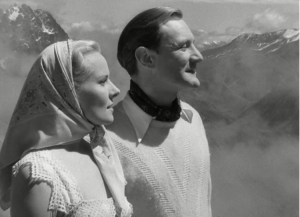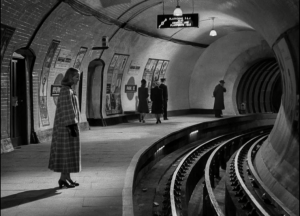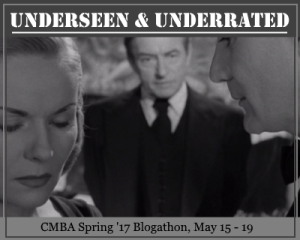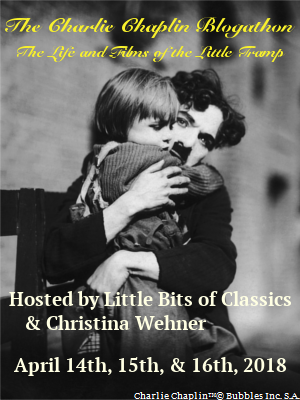 The Passionate Friends was directed by David Lean during a period when he made three films with his lover and then wife, Ann Todd: The Passionate Friends, Madeleine, and The Sound Barrier. These films, however, tend to fall through the cracks between his early films such as Brief Encounter and his two Charles Dickens films and his later epics such as Lawrence of Arabia. The Passionate Friends, however, just might be my favorite David Lean film that I’ve seen so far.
The Passionate Friends was directed by David Lean during a period when he made three films with his lover and then wife, Ann Todd: The Passionate Friends, Madeleine, and The Sound Barrier. These films, however, tend to fall through the cracks between his early films such as Brief Encounter and his two Charles Dickens films and his later epics such as Lawrence of Arabia. The Passionate Friends, however, just might be my favorite David Lean film that I’ve seen so far.
The story is based on a novel by, of all people, H.G. Wells. It is a romantic triangle, about a woman married to an older man, but she loves another, though the film does not develop as one expects.
The film unfolds through various flashbacks. Mary Justin (Ann Todd) is married to the wealthy banker, Howard Justin (Claude Rains). When she was younger, she was passionately in love with Stephen Stratton (Trevor Howard), a poetry-quoting young biologist. But she said she could not bear to belong to anyone; she wanted to belong to herself. Stephen maintained that if two people love each other, they want to belong to each other, but she said she did not like the clutching and grasping and instead chose to wed Howard, who understood that she did not love him, but felt that they could make a good marriage based on affection and a shared enjoyment of wealth and power.
But when Mary and Stephen unexpectedly meet years later, the powerful spark of attraction is still there and they begin a passionate affair, with Stephen convincing Mary to leave Howard. Before she can, however, Howard returns. He’s furious and he convinces her that she would not be happy with Stephen and she agrees with Howard, leaving Stephen flat. Nine more years pass and she and Stephen meet at a mountain resort in Switzerland. The spark of uncontrollable passion is gone, but Howard does not believe it and starts divorce proceedings, which threaten to ruin Stephen’s job, his reputation, and his marriage.
(Spoilers are Rife) The way Lean begins the film is fascinating, because it is set up to make you think that Mary is trapped in a sterile relationship. She bumps into Stephen in a crowd of people. They are at a New Year’s costume party. She then joins Howard, who is sitting in a box high above the rest of the crowd, watching the crowd uninhibitedly kiss and dance and sing while Howard observes them from a detached perspective, even commenting that they look like puppets on a string. In our first sight of Howard, he turns around to face the camera looking rather like Mephistopheles. Stephen, on the other hand, is imbued with romanticism and their encounters are accompanied with romantic words and music. It makes one to expect Anna Karenina (or at least how Anna sees her story).
The brilliance of the film, though, is how by the end of the film, everything is reversed. “Do you know, Stephen, that we are practically strangers.” Mary says, when they meet again in Switzerland. Stephen has found more lasting, tangible love with another woman and has two children. Mary sees that he is happy. Not passionately happy, but contented and at peace with his life…perhaps a more lasting kind of happiness than their delirious love affair.
And it is clear that Mary’s marriage to Howard has not been as flat as it initially appeared. She considers it a success, they like the same things, clearly discuss politics and his work and seem to be a team with genuine affection for each other. She is highly self-aware, so that although she is carried away by romance, knows that romance is not enough. But the real irony is what happens to Howard.
Claude Rains as Howard Justin is absolutely magnificent. Ann Todd and Trevor Howard are good, but it is Claude Rains who really leaves an impression on the viewer. He plays a man coldly rational, a man who sees himself as a manipulator of events, such as when he contrives to let Mary know that he knows about her affair with Stephen. His rationality is repeatedly contrasted with the romanticism of Stephen. And yet in the end, he emerges as the genuinely romantic one while Stephen fades into staid gentility.
It’s an amazing transition that happens subtly. What has happened is that Howard has fallen in love with his wife, though he did not know it. He’s found unexpected depths of passion and initially reacts with furious jealousy. It’s shown subtly. In the beginning of the film, he seems complacent about his relationship with Ann. By the end, before he discovers that Mary and Stephen saw each other in Switzerland, he is almost boyishly excited to see his wife again. When he thinks he’s discovered that she’s been unfaithful to him again, his hurt is palpable rather than the mere anger he experienced the first time. He even cruelly tells her to get out and that he doesn’t want her anymore, which crushes her.
And he perhaps has some reason for feeling jealous. Because although nothing happened between Stephen and Mary – it served more as a lovely meeting that brought closure to their relationship – it seems that Mary does love Stephen in a new way. Less emotional, more mature, deeper. A love that seems to think about him rather than herself. When Howard sues for divorce and names Stephen, she is concerned about Stephen and how it will ruin him and his family, not herself, and even resolves on an Anna Karenina-like suicide in order to prevent the divorce from going forward.
Howard, however, is the one who gets to rescue her. After dismissing Stephen’s love “as the kind that makes big demands,” of “nearness” and “belonging” and prone to “romantic hysteria,” he ends up loving a woman who does not love him and never will. A love that, essentially, makes no demands. The look of wonderment she gives him after he stops her from killing herself and asks her to come home is rather beautiful.
This post was written as part of the “Underseen and Underrated”, the CMBA Spring Blogathon. Click here for more posts!










